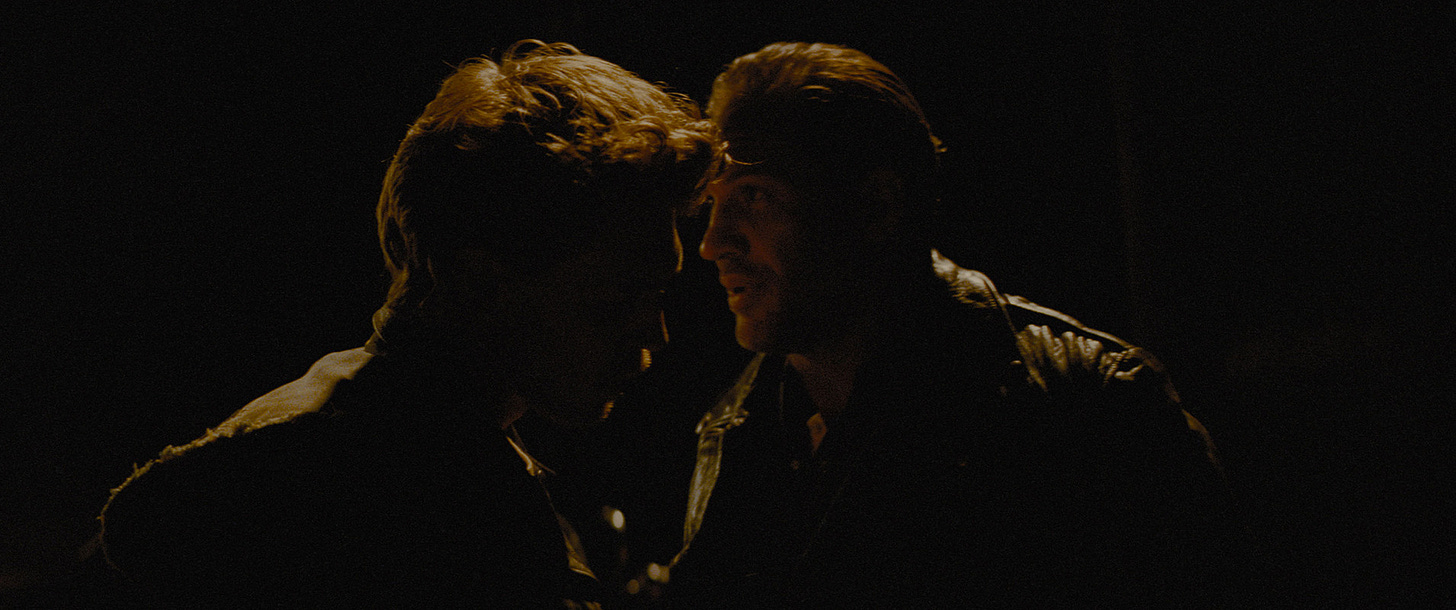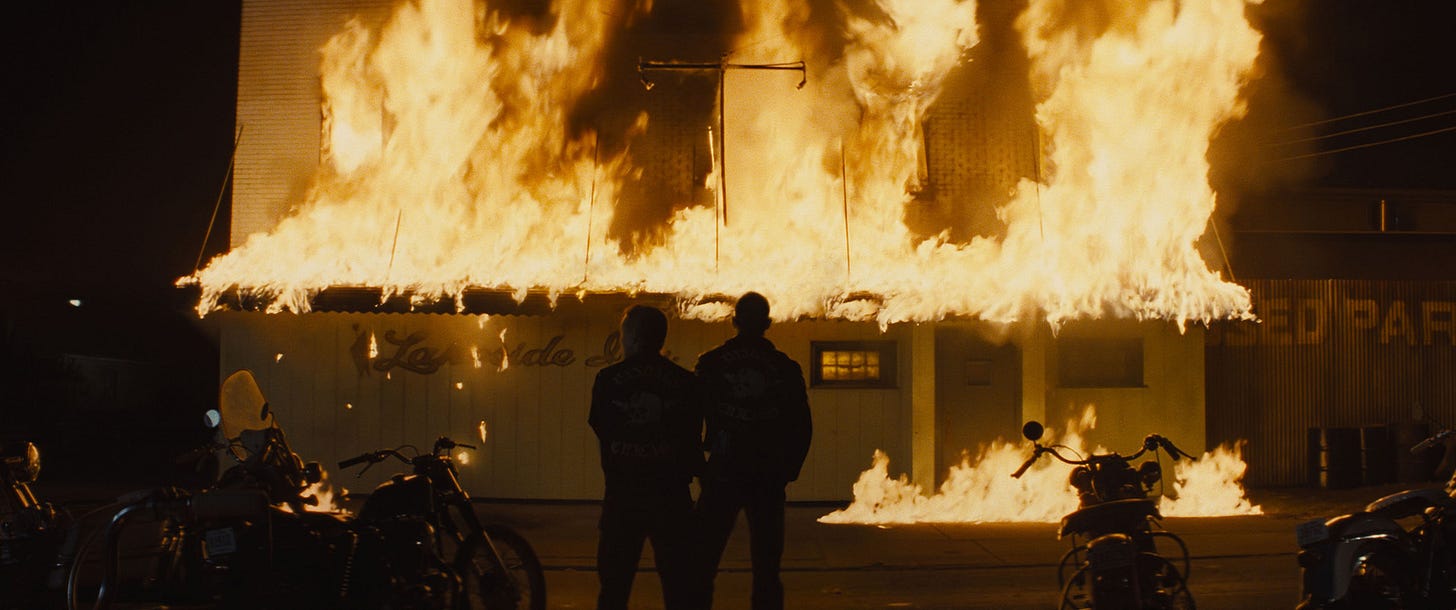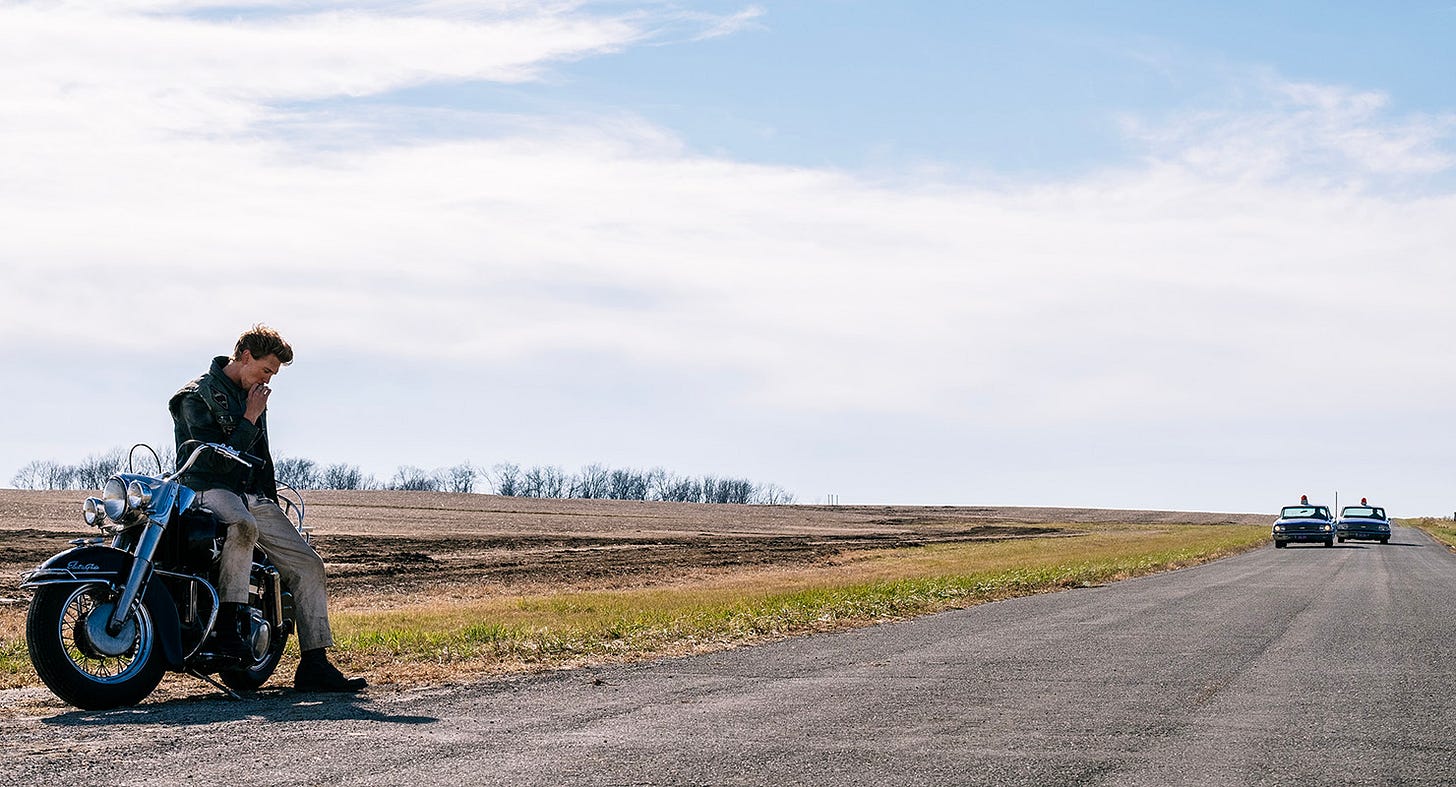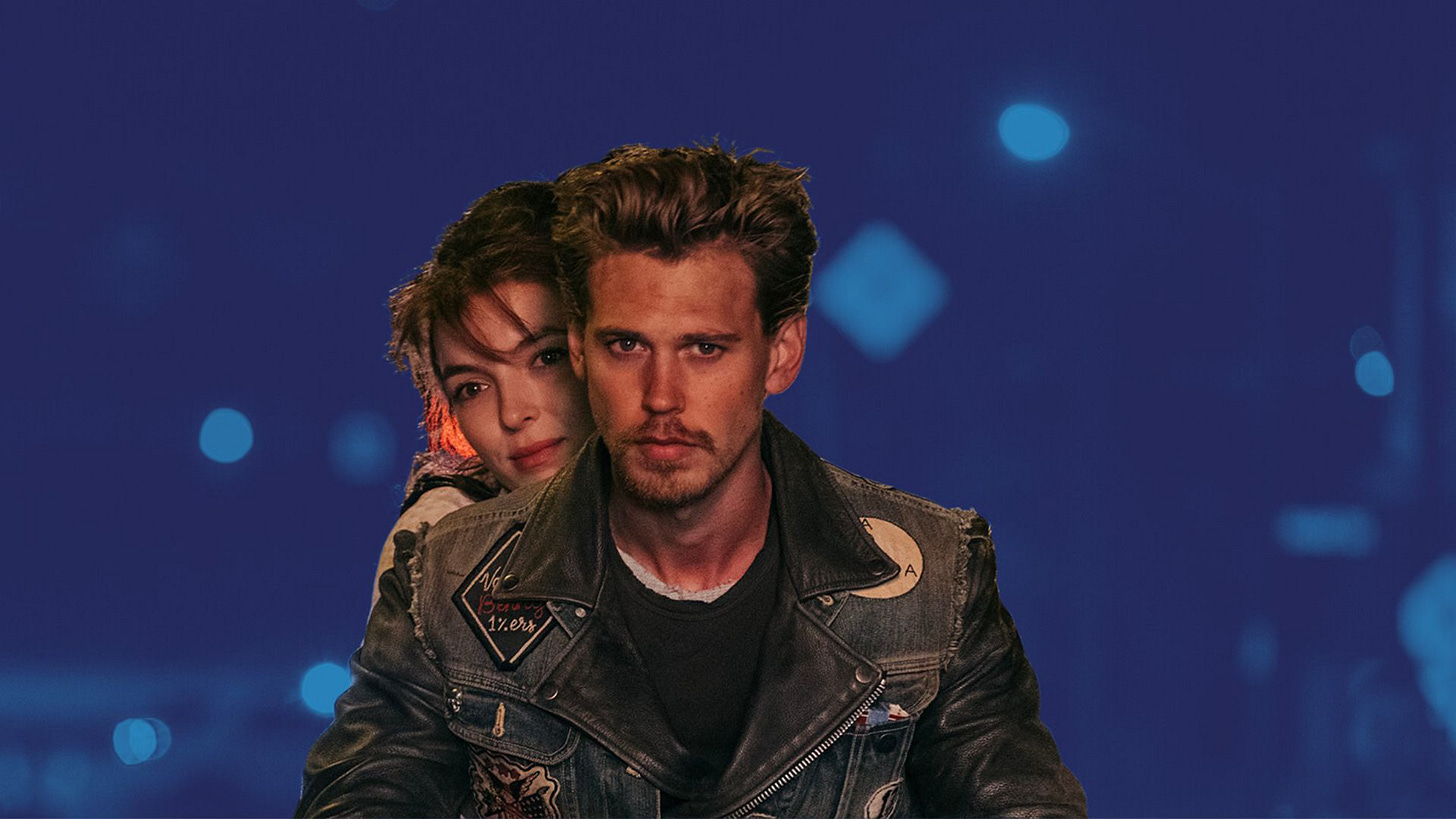The Bikeriders
Searching for Freedom in and From the Law
“What do you think this is? What did you ever think this was gonna be?” one character asks another in The Bikeriders. The question could just as easily be directed at the audience. Released this June, The Bikeriders utilizes an unusual structure, compelling performances, and a unique point of view to provide an experience far different than what viewers may be expecting, offering a poignant look into our innate longing for freedom and belonging.
Writer and director Jeff Nichols’ film follows the Vandals motorcycle club (based on the real life Outlaws motorcycle club) from their early days in the 1960s through their evolution in the 1970s. As violence and drugs infiltrate the club, its original members start to question the Vandals’ identity and their place in the evolving organization.
A Collage of Events
Nichols’ adapted screenplay offers a unique and surprising structure. Much like the photo-book that inspired the film, The Bikeriders often feels like a series of moving portraits or a collage of events stitched together. Julie Monroe achieves a true feat of editing, weaving together seemingly disparate moments amidst multiple eras of interview segments and time jumps to create a cohesive and compelling flow to the film. An overarching narrative exists to be sure, but most scenes stand independent of one another, acting as an “image” for the viewer to analyze and interpret in light of the characters we know.
Such a character-driven film requires spot-on performances, and the core trio in The Bikeriders captivate at every moment. Jodie Comer portrays Kathy as a strong but vulnerable woman desperately trying to pull her husband away from the club’s lifestyle. She commands the room in every scene, holding her own with the Vandals and insisting she’s seen and heard.
Johnny (played by Tom Hardy with the latest in his string of exaggerated accents) commands the screen as the quiet but intimidating leader of the Vandals. He takes long, tired pauses every time before he speaks, an appropriate character choice that left me on the edge of my seat in the film’s tense conversations.
Austin Butler’s Benny, a role one would expect to be the lead in a film of this type, is in some ways the emptiest character, more of an object of influence for Kathy and Johnny to fight over than a three dimensional part. But Butler imbues Benny with a fiery rebellion via piercing stares and furrowed brows, communicating his feelings effortlessly even as a man of few words.
A Fresh Perspective on a Classic Genre
It’s easy to be reminded of Scorsese’s crime films like Goodfellas and Casino while watching The Bikeriders. The film contains countless Scorsese trademarks, telling the rise and fall of a doomed organization using voiceovers to narrate montages and a soundtrack filled with period-appropriate songs.

But Nichols' style differs from Scorsese in important ways. Whereas Goodfellas places us in the shoes of a new mob recruit, The Bikeriders establishes Kathy as the film’s main narrator and one of its leads, a small, but key choice that impacts the way we view the events of the film. Moments like Kathy’s first bike ride reveal the happy moments that keep her around, and, subsequently, when Kathy asks Benny to stop riding, we readily empathize with her concern for his safety.
Kathy’s unique point-of-view as a non-club member and a female (a rarity for a film of this type) allows us to see the club for what it is: a flawed and increasingly dangerous organization masked by the guise of freedom and belonging. The audience can never fully succumb to the club’s allure because Kathy’s perspective frequently reveals its flaws, even when its members remain blind to them.
In a somber moment of reflection toward the end of the film, Johnny tells Kathy, “You can give all you got to a thing, but it's still just gonna do what it's gonna do.” And it’s true; despite his efforts to reel the club in, they’ve spiraled out of control in ways he didn’t expect. But like a virus, starting small but eventually spreading, the flaws that are glaringly obvious to Johnny by the film’s end were evident in the Vandals’ early days. Misogyny gives way to attempted assault; fist fights and wrestling brawls are replaced by gun fights and murders. Johnny’s idyllic vision for the club – a club solely focused on a love of motorcycles – never truly existed without the very issues that led to its downfall.

In a way, the same is true of Kathy’s relationship with Benny. She thought she could change him, that she could give her all to making Benny the best husband and man he could be. But the signs were there from the start to tell her Benny’s wild nature wouldn’t easily be changed, and their marriage would never be the simple domestic life she hoped for.
A Search for True Freedom
At the heart of the club’s rise and fall is their relationship with rules and the law. Members of the Vandals are often free spirits, priding themselves in their rebellion against the law and discardment of society’s rules and standards. This search for freedom goes hand in hand with their need for belonging. The club members seek a sense of identity and community within the Vandals, and for a time, they find it. Their happiest moments are often found in this collective rebellion, as witnessed when Benny is chased by the cops and the club members excitedly read about his exploits after.
The Vandals may yearn for freedom from structure, but, as Kathy notes ironically, they ultimately submit to countless rules as a part of the motorcycle club – a source of the club’s division and ultimate downfall. In seeking freedom and belonging, they find themselves captive to a destructive system of their own making. And as the characters learn, there isn’t an easy way out.

The rejection of the law and their eventual entrapment within their own rules mirror a deeper human condition that holds Christian significance. We all hope for something more, for freedom from the restrictions and trappings of this life, for a belonging that fills the void inside us. But we’ll never find the freedom or belonging we’re looking for apart from Christ.
“Christ has set us free! This means we are really free. Now hold on to your freedom and don't ever become slaves of the Law again. My friends, you were chosen to be free. So don't use your freedom as an excuse to do anything you want. Use it as an opportunity to serve each other with love.” - Galatians 5:1,13
The film’s haunting final frames hint at this inner longing, relying solely on a wordless performance from Butler, whose far off half-smile communicates a dozen emotions at once. Has he found the life and meaning he was looking for? Kathy certainly seems to think so. But his distant look seems to hint that he’s still searching for a freedom and belonging he’s yet to find.
While it may be quieter and more melancholy than most films in the genre, The Bikeriders is a moving exploration of humanity’s search for freedom and belonging that I highly recommend. The fresh structure and perspective, paired with strong performances from the cast, create a film that not only stands out among its peers but also lingers in the viewer’s mind long after it’s over.


